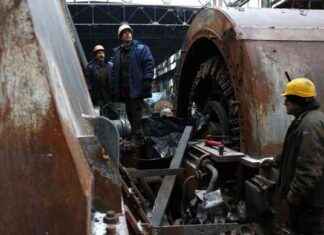In the decade after the decade was the defense a smoky back rooms of politics. It was an area for those in the know and trusted, and the public debate was generally modest, often unsolicited. Now you need defence and security policy up on the agenda. There are especially two reasons for this: The security situation is far more unsafe and complex than before, and the costs of a modern defense is surging. Politicians are forced into difficult choices and priorities.
A good example of this is the speech of chiefs of defence Haakon Bruun-Hanssen held in Oslo Military Society earlier this week. There he said that the current forsvarsplanen (“minimumsforsvaret”) no longer is a minimum. It is too small for that defense over time can clear their obligations nationally and internationally. The chief of staff believes that both the navy’s and the army’s endurance and ability presence is not good enough. The background is changes in the security landscape and new expectations for Norway in Nato. Norway must spend more money on defense.
This is in line with what forsvarssjefens critics long have claimed. They believe Haakon Bruun-Hanssen has taken great political obedience, and been too unclear about the major deficiencies that characterize the military structure and capabilities. Now has the admiral gone in a more offensive position. Many will think it is necessary, not least because the challenges for the Uk is significant. It hangs bl.a. together with what can be called the defense policy triangle: 1) Norway is a småstat with a large country – and sjøområde, 2) the development of military technology has an ever-faster change of pace, and 3) there is a peculiar and powerful development of military materiel. In good English: It is becoming increasingly more demanding and costly for a småstat to keep up with a modern and effective defense.
This means that the Norge must make fundamental choices. If we are to have a defense with the greatest possible national control and capacity, we must accept that the price tag is going to increase noticeably. The alternative is to hand over even more of the contingency plans to the allies, primarily the united STATES. If the united STATES will. President Trump has created so much doubt about the alliance’s future that it is not a matter of course.
Alliansefrihet is not something realpolitisk option for Norway in an increasingly troubled world. At the same time, we must take greater responsibility for our own safety and independence. It means that expenses of defense need to be increased to a higher level.








